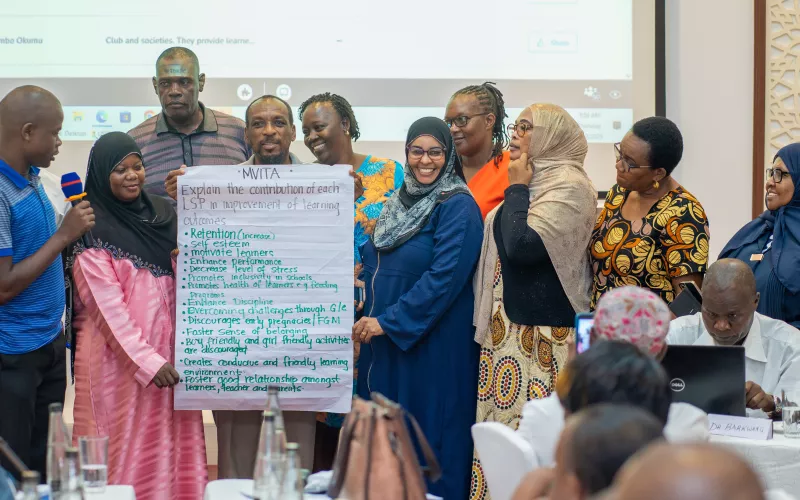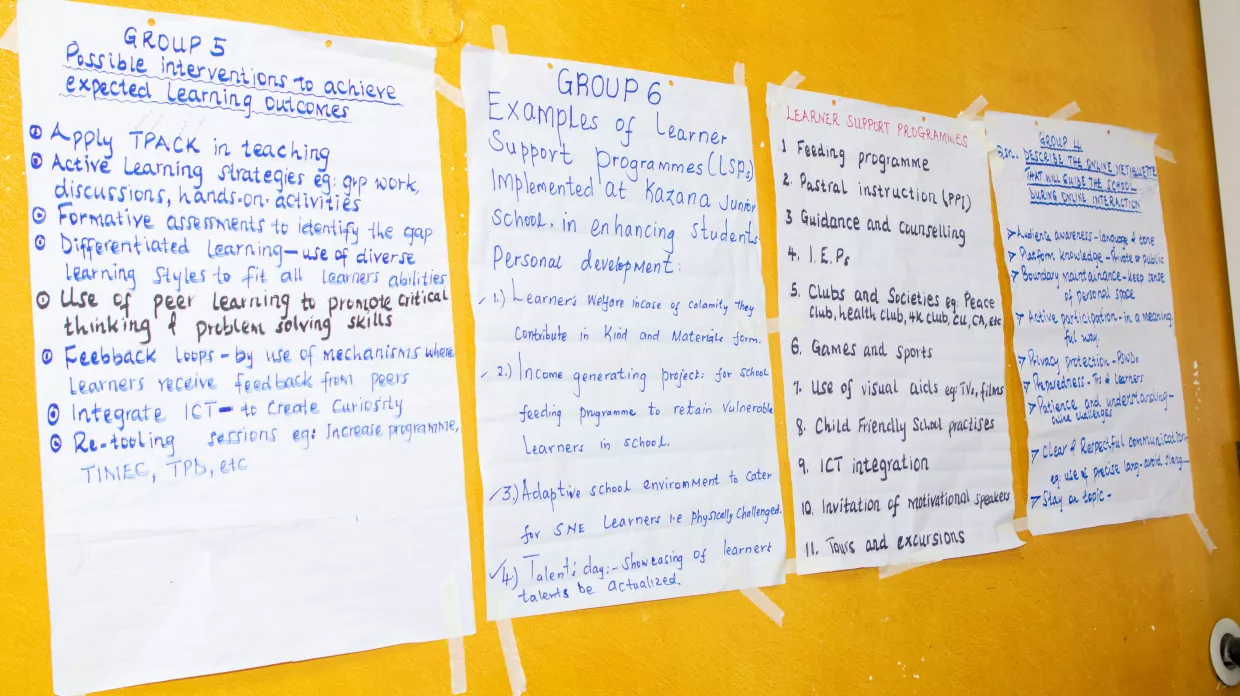Join our newsletter
By subscribing you agree to our Privacy Policy

The critical role of teachers in achieving Sustainable Development Goal 4 (ensuring inclusive and equitable quality education and promoting lifelong learning opportunities for all) has become increasingly evident in recent years. Research consistently shows that teachers are the most important school-related factor affecting student learning. The 2024 Global Report on Teachers by Teacher Task Force recognises teachers as the core of all education systems and central to unlocking every learner’s potential, which means that to achieve quality education for all, every child must have access to a qualified teacher.
According to UNESCO's Metadata for the Global and Thematic Indicators on SDG 4 and Education 2030, teachers must receive adequate, appropriate and relevant pedagogical training to teach at the chosen level of education and be academically qualified in the subjects they are expected to teach. This centres on the need for adequate and well-prioritised investment on teachers, a theme that resonates with VVOB- education for development’s ongoing work in Teacher Professional Development (TPD) for Gender-Responsive Pedagogy (GRP) in collaboration with Forum for African Women Educationalists (FAWE).
Effective TPD is essential for equipping teachers to help students develop 21st century skills such as critical thinking, collaboration, problem-solving and self-direction. These complex competencies require sophisticated teaching methods, which in turn require ongoing professional development.
Preliminary findings from a VVOB Evidence Review on TPD for GRP in Sub-Saharan Africa (SSA) reveal that effective GRP implementation requires systematic teacher training that addresses gender biases, equips educators with practical classroom strategies and promotes inclusive learning environments. The report further reveals that despite progress in expanding access to education across SSA, persistent gender inequalities in classrooms continue to affect students' participation, learning outcomes and overall educational experience, for which Kenya is not an exception.
Evidence from multiple African countries however demonstrate that when properly implemented, GRP significantly improves educational outcomes for both girls and boys and contributes to broader social transformation toward gender equality. This can only be possible when planning and budgeting takes cognisance of all children’s rights to education.
The right to education in Africa is enshrined in the African Charter on the Rights and Welfare of the Child, the African Charter on Human and Peoples' Rights and international agreements like the Convention on the Rights of the Child. The African Union’s Agenda 2063 also places universal access to quality education at the heart of sustainable development for the continent.

According to a UNICEF report, Children in Africa: Key Statistics on Child Survival and Population (2019), Africa’s child population is projected to reach 1 billion by 2055, making it the largest globally; nearly half of Africa’s current population is under 18, with a significant portion under 15. This demographic trend underscores the urgent need for greater investment in children’s health, education, and protection, to harness the continent’s potential.
Further, the Education Finance Watch 2023; Special Edition for the African Union Year of Education 2024 Report highlighted that the average government spending on education as a share of Gross Domestic Product (GDP) was just 3.7%, unchanged since 2012, which is below the internationally recommended benchmark of 4%. This affirms that African nations still have a long way to go towards the realisation of educational ambitions in the continent.
On June 16, Africa unites in commemorating the Day of the African Child (DAC), a momentous occasion to honour the courage and sacrifice of students who participated in the Soweto Uprising in South Africa in 1976. On that day, thousands of black schoolchildren marched to protest the poor quality of education and demanded to be taught in their own language. Tragically, many lost their lives in the protests.
Since its first commemoration in 1991, the day has been an opportunity for all stakeholders and actors involved in the protection and promotion of children's rights in Africa to come together, to consolidate common goals and to tackle the obstacles that stand in the way of achieving an Africa fit for its children.
In 2010, the theme of the DAC was "Planning and budgeting for children's rights: collective responsibility." The commemoration of the DAC on this theme was informed by the various challenges the African Committee of Experts on the Rights and Welfare of the Child (which leads the commemoration of DAC) observed on budgeting for children’s rights. The Committee decided that in 2025 DAC would be commemorated under the theme "Planning and budgeting for children's rights: progress since 2010."
Viewing this year’s theme through the lenses of Sustainable Development Goal 4 and more particularly, under the Education 2030 Framework for Action therefore calls for increased investment in education and educators, ensuring adequate funding for marginalised groups and domestic and international financing mechanisms to support education initiatives.
To meet 21st century learning needs like critical thinking, collaboration and problem-solving, as well as ensuring educational equity and access, teachers must be equipped with modern, inclusive pedagogies. Yet, too many teachers across Africa lack access to continuous, context-relevant professional development. One promising approach, however, is through Gender-Responsive Pedagogy (GRP), which equips teachers with the skills to create inclusive, participatory learning environments, recognise and address gender biases in the classroom, and encourage equitable student engagement and performance.
Through partnerships in initiatives such as the Regional Teachers’ Initiative for Africa (RTIA), GRP is being integrated into Teacher Professional Development systems in SSA with a focus on identifying, co-creating and scaling promising TPD for GRP solutions, thereby improving learning outcomes and the socio-emotional development of children in Africa.
Building on the SDG4-Education 2030 commitments, the 2021 Global Partnership for Education’s Call to Action on Education Finance, the Paris Declaration on Education Financing and other existing frameworks on financing for development, it is imperative that governments and education partners assume their responsibility for adequate financing of education, working to identify and solve the main roadblocks to domestically agreed priorities and internationally agreed goals for education. Further, they need to commit to allocating educational investment more equitably and efficiently, starting with early childhood care and education so that advances towards quality education for all are efficiently achieved. This will enable every child regardless of gender, location or socio-economic status, to thrive.
As we celebrate the Day of the African Child, let us all renew our dedication to ensuring every child enjoys equitable access to education through proper planning and budgeting. Let us all advocate for sustainable financing models that support innovative teaching approaches, inclusive learning environments and strengthening education systems.
By subscribing you agree to our Privacy Policy
Julien Dillensplein 1 bus 2A
1060 Brussels
Belgium